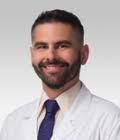October: Hispanic Heritage Month
Dear RPS members,
 In 2022, the RPS would like to focus on embracing diversity, equity and inclusion; and on broadening our international network. One way to achieve this goal is to celebrate a semi-monthly calendar of observances and appreciations with 10-question interviews highlighting our diverse pool of members. This month we feature one of our newest, junior members, Dr. Alcino Gama for Hispanic Heritage month!
In 2022, the RPS would like to focus on embracing diversity, equity and inclusion; and on broadening our international network. One way to achieve this goal is to celebrate a semi-monthly calendar of observances and appreciations with 10-question interviews highlighting our diverse pool of members. This month we feature one of our newest, junior members, Dr. Alcino Gama for Hispanic Heritage month!
Dr. Gama is a native of Brazil and a former nephrologist who trained in one of the best institutions in Latin America and practiced clinical nephrology for 5 years in Sao Paulo, Brazil and performed research in the immunology of kidney transplantation in Canada. His love for renal pathology inspired him to pursue nephropathology, and he is currently a PGY-2 resident in pathology at Northwestern University. He is a member of the communications and website committee/social media working group and an avid lover of his Corgi, Dodo.
Please find his interview below:
https://nationaltoday.com/hispanic-heritage-month/
1. What
is your name, where were you born, where do you work?
My name is Alcino Gama and I was born in Natal, Brazil. I currently work as a pathology resident at Northwestern Memorial Hospital in Chicago, IL.
2. What
is your number one topic of interest in nephropathology?
I am most passionate about clinical-pathology correlation. When I practiced nephrology, I always made sure to provide the pathologists with adequate information to assist them in arriving at an accurate diagnosis. Now, seeing patients from the pathology perspective, I understand that communication is beneficial for both sides and, more importantly, for patient care.
3. What is
the thing you like most about your job?
As a general pathology trainee, I love the daily diagnostic challenges and the excitement of learning such a dynamic specialty. After a few years of practicing nephrology, it feels great to live in the academic world again, especially in such a diverse work environment. I do feel “home,” even though I am over 4,000 miles away from “home.”
4. What
is the most challenging aspect of your job?
Shifting from an ultra-specialized field (clinical nephrology) to an ultra-generalized field (anatomic/clinical pathology) and learning everything from “scratch” in a different language was very challenging, especially during my first year of pathology training. As a second year, I am more used to it, but I still get scared of the amount of information we are expected to learn to become a general pathologist.
5. What did
you want to become when you were a child?
When I was 10, I wanted to be a veterinarian! But back then there was no vet school in my hometown and moving out was not an option due to my family resources, so I grew up knowing that being a vet would not be an option. Thankfully, we had a fantastic med school in my hometown, and I was lucky enough to get a spot there.
6. What
would be your wish for the future - in general or in relation to your
work?
I see myself as a renal pathologist working in an academic center playing a significant role in patient care and contributing to the scientific development of the field.
7. Any
special interests apart from Nephropathology?
I am passionate about medical education, especially resident training. Following my nephrology fellowship, I was a chief fellow and that was an outstanding experience in terms of interpersonal and professional growth. Inside pathology, I have also developed an interest in surgical pathology, especially genito-urinary pathology, which I see as a potentially interesting combination with my main field of interest, renal pathology.
8. How do
you think Pathology will look like in 10 years’ time?
I am very optimistic about the incorporation of ancillary methods, molecular techniques, and AI into comprehensive patient care. I believe that everything that translates into better patient outcome is valid and I foresee it happening in the next decade in pathology. When it comes to renal pathology, I believe that the main shift in patient care will occur in transplant pathology, with the progressive incorporation of molecular methods into the diagnosis and management of rejections.
9. Who would you consider to be your
mentor in renal pathology or pathology in general?
Ever since I manifested my interest in switching from nephrology to pathology, I have had support from many renal pathologists across the United States, Canada, and Brazil. Among them, Dr. Ellis (@theglasspusher) has been my mentor in renal pathology. She is a very experienced pathologist and the medical director of renal pathology at Northwestern. I reached out to her very early in my pathology training manifesting my interest in renal pathology. She developed a personalized “schedule” including 1:1 training with progressive responsibilities, provided me with a personalized renal pathology rotation considering my background, engaged me in activities with our clinical nephrologists, and introduced me to the “renal pathology world” on a national level, always highlighting my “double-training” as an asset. I am very grateful to have her to guide my career endeavors.
10. What is
your favorite non-work-related activity or way to spend your time?
As a Brazilian who was born and raised on the coast, laying on the beach is for sure my favorite activity. I love to do it with my family, friends, dog, or even by myself: I have a very strong connection with the water. And I am blessed to live one block away from beautiful Lake Michigan, where I commute daily by bike. During the weekends, I can enjoy the Chicagoan beach.
Bonus Question: Have you experienced any challenges or is there anything you would like the RPS to know about navigating the field of academic medicine (or non-work-related life) as an international medical graduate or being from a Hispanic/Latino background? Are there specific experiences that you would like to share? What advice do you have for medical trainees or junior faculty that are underrepresented in medicine?
I struggled with the sudden transition from practicing nephrology in Portuguese to learning pathology in English. However, I was blessed to match in a pathology program that assigned me a Latino mentor (Dr. Novo, @novo_pathology) and a Latina senior resident (Dr. Mejia Bautista, @Melissa_MB91). Having them ahead of my surgical pathology training was essential: they had been in my shoes a few years before and knew exactly what was going on from both cultural and language perspectives.
I was lucky to have Dr. Novo and Melissa, but unfortunately that is not the reality for most Latinx trainees: we are truly underrepresented in medicine: about 20% of the American population is Latinx, and yet only about 7% of American physicians are of Latinx origin. Both Latinx patients and Latinx trainees need more Latinx leaders in medicine. The main advice I can give to future trainees is to seek mentorship from people that look like you and have them as role models! Our community is very supportive, and I hope to one day pass along their gesture and do what I can to make us stronger.




